Writing a good ensemble movie is hard. (Just ask George Lucas, who accidentally took ensemble storylines mainstream when American Graffiti became a surprise hit.)
But writing a good ensemble TV series, where multiple characters and subplots have to be juggled for hours (or years) and still lead to a satisfying conclusion? That can feel impossible. Given how many moving pieces there are in an ensemble show, the likelihood that any one part of them can break down and wreck the whole venture is daunting. (Even hits like Game of Thrones have their good days and bad days.)
That’s why Marvel’s Defenders series is so frustrating. While it has some enjoyable moments, the series ultimately suffers from four storytelling flaws that cause it to fall short of satisfying.
Before we look at those flaws (and how to avoid them in your own stories), let’s recap who The Defenders are and why they had an uphill battle to begin with.
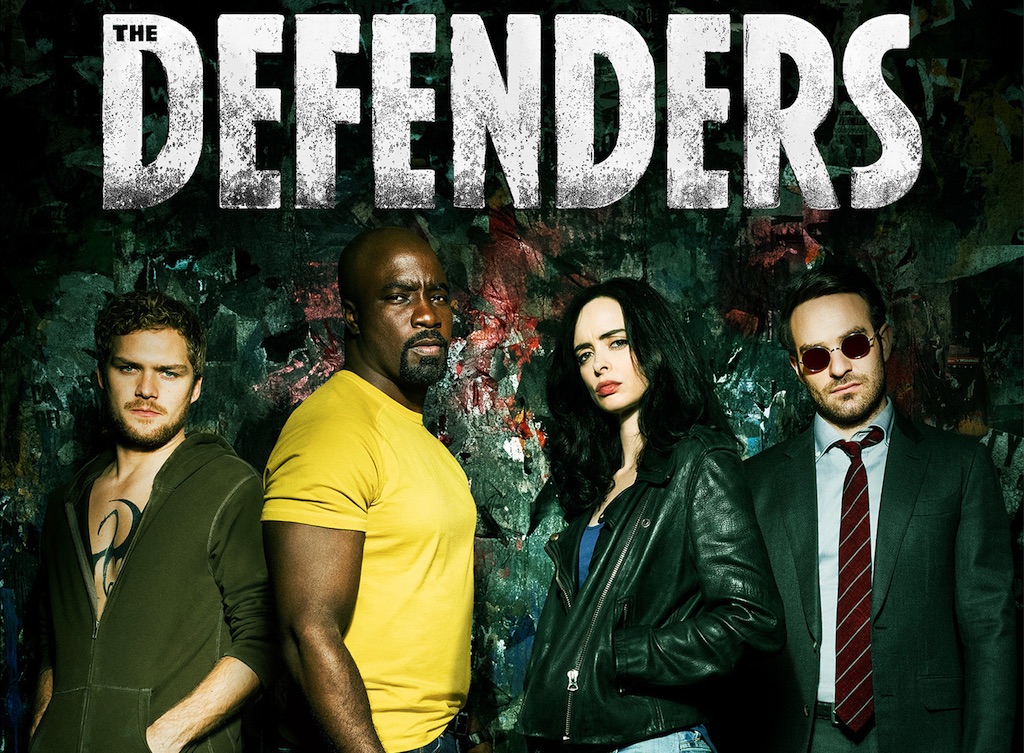
Iron Fist, Luke Cage, Jessica Jones, and Matt Murdock find the best-lit graffiti alley in NYC
Marvel’s Defenders: A Netflix Experiment
In 2013, Marvel was coming off the massive back-to-back success of The Avengers and Iron Man 3, and America’s appetite for Marvel stories was at an all-time high. So it was only slightly surprising when Marvel announced a production deal with Netflix.
The plan was to develop stand-alone series starring four of Marvel’s “street-level” heroes, whose localized conflicts would be smaller in scope than the global adventures of The Avengers. After their solo introductions, Daredevil, Jessica Jones, Luke Cage, and Iron Fist would eventually unite in a team-up miniseries, Marvel’s The Defenders.
Despite their film wins, no one could guarantee that a TV audience would show up to see Marvel’s cinematic brand of storytelling on the smaller screen. But when Marvel’s Daredevil debuted to rapturous reviews in 2015, followed by nearly-equal raves for Marvel’s Jessica Jones later that year, the doubts were silenced. Instead, the new question was: if this is how good Daredevil and Jessica Jones are alone, how amazing is it going to be when all four of these characters finally get together?
Unfortunately, things started to slip downhill from there.
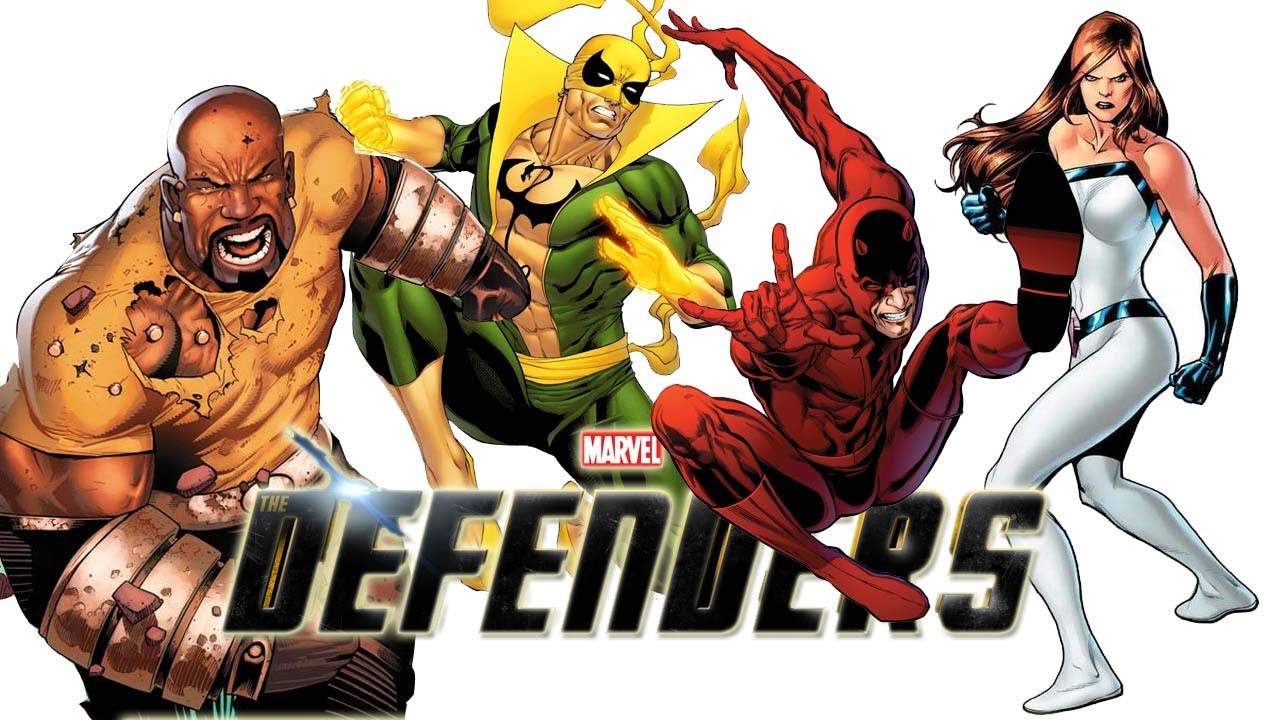
The color-coded source material for Marvel’s Defenders
First, while Marvel’s Luke Cage was a critical success, audiences were less enthused. Season One of that series currently holds a 79% audience score on Rotten Tomatoes, compared to the 96% for Daredevil Season One and 89% for Jessica Jones Season One. (Interestingly, Season Two of Daredevil became the first Marvel Netflix series to have a higher audience rating [94%] than critical rating [74%], likely due to the audience affection for series guest-star The Punisher.)
Then Marvel’s Iron Fist debuted, and critics were united in their opinion that it was not good. (It’s currently just 17% fresh at Rotten Tomatoes, although fans are more forgiving at 77% positive.)
What happened?
Aside from cultural concerns about yet another white male hero in a Marvel Universe that’s short on diverse leads, the bigger issue was fundamental: Iron Fist, as portrayed by actor Finn Jones, was dickishly unlikable.
This was a big problem, because Danny Rand (a.k.a. Iron Fist) is the second-most important character in The Defenders. Would audiences want to invest themselves in watching 8 more hours of a character they found disappointing, annoying, and potentially off-putting?
As it turns out, the answer is… kind of.
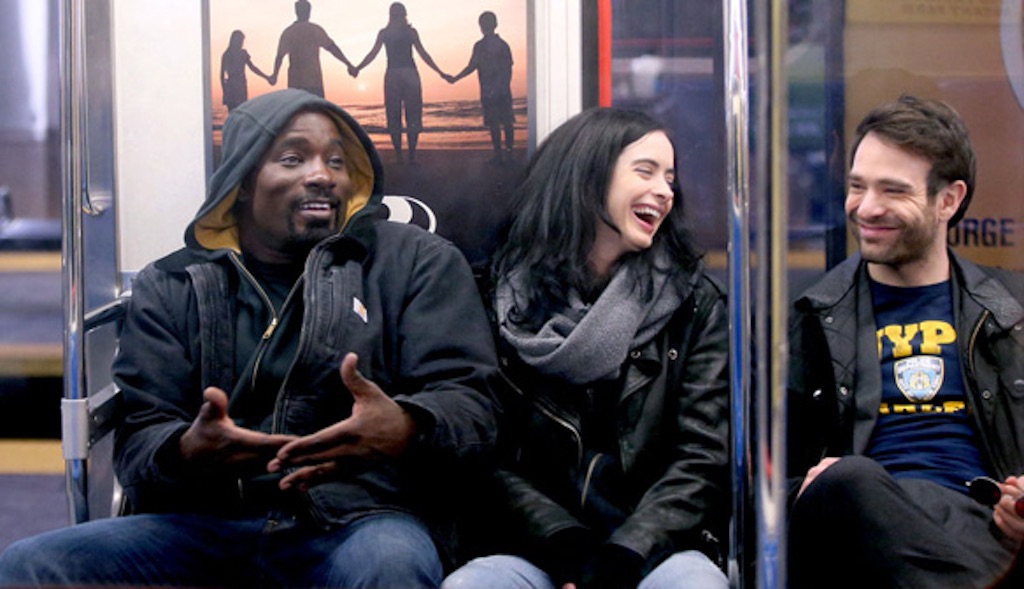
Mike Colter, Jessica Jones, and Charlie Cox discuss the absurdity of superheroes who have to rely on public transit
Marvel’s Defenders: The Good, The Bad, and The Frustrating
Although Marvel’s The Defenders scored passable ratings from critics and audiences alike (74% and 77%, respectively), its viewership tells another story.
According to the audience measurement service Jumpshot, The Defenders had the lowest ratings of any Marvel Netflix series yet. Worse, its week-to-week dropoffs (estimated at 64%, 48%, and 41%) are comparable to that of a bad horror film. Numbers like that imply a bored audience and a lack of positive word of mouth, which is what helped Daredevil and Jessica Jones break out.
Also, a lot of people were still aggravated by Iron Fist, as this measurement of audience sentiment shows.
But Iron Fist isn’t the only reason The Defenders stumbled. In fact, many critics think Iron Fist (and Finn Jones in particular) earned some redemption in this series. (Or, at least it “made Iron Fist bearable,” which… hey, that’s something, right?)
So, where exactly did Marvel’s Defenders go wrong?
Four ways.
******** WARNING: Spoilers ahead, obviously. ********
Poor Pacing
I’ve written about this before, but bad pacing is a story killer.
More than anything else, this is where Marvel’s Defenders falls short. And, in fairness, it’s not an easy problem to solve when you’re juggling so many characters in just 8 episodes. (More on that in a second.)
But the bigger issue is that there just isn’t enough story to go around in The Defenders, so every scene gets dragged out for too long in order to pad the running time.
The show’s plot is fairly straightforward: an immortal ninja clan called The Hand wants to capture Iron Fist for [a secret reason], so the heroes have to protect him. But they fail, so then they have to save him and destroy The Hand in the process.
This might be enough for a fast-paced four episodes. Instead, it turns into a bloated eight.
The two biggest pacing sins?
First, most of the exposition comes while characters are doing nothing else.
Take the sequence when Iron Fist is tied to a chair while Luke Cage and Stick try to prevent him from escaping. The show sees this as an opportunity to help Luke and Danny bond over shared backstories, and for Stick to reveal some of his own backstory as a setup for a twist. Functionally, this works on paper.
The problem?
Literally all of this dialogue happens while characters are sitting, stationary, in one room.
Riveting.
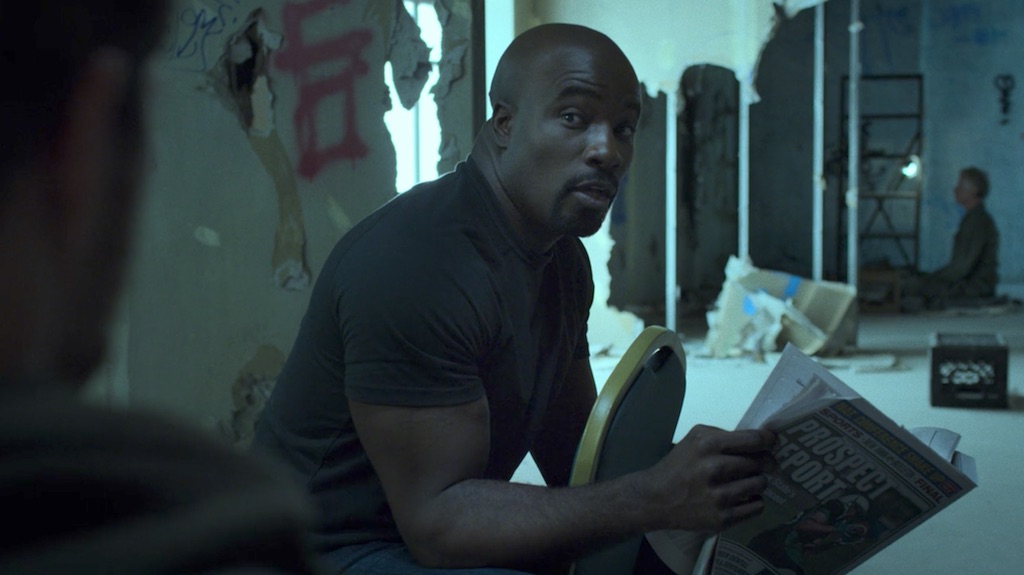
“Hey, I have an idea. Let’s talk while no one moves for like an hour.”
Second, nearly every scene involves one character explaining something rather than doing something.
It’s as if the writers were concerned that a viewer who missed one of the four earlier series might be so confused about a plot point or a character’s motivation that they’d stop watching. So, to solve this problem, they routinely have one character stop the action to bring another character (as a stand-in for the audience) up to speed.
You could remove half the dialogue (and, honestly, half the scenes) in The Defenders and the audience would still be able to piece together what was happening, and why. Instead, it feels like we’re perpetually being hand-held and spoon-fed a story that isn’t all that complex to begin with.
Marvel: trust your audience. Half the fun of a fast-paced story is figuring out what’s missing in the gaps.
Too Many Characters
This may seem like an unavoidable flaw in a series that’s attempting to merge four different narrative arcs into one. Each of our heroes has his or her own supporting cast, and fans will understandably want to see their favorite secondary characters interact.
Unfortunately, The Defenders stumbles here on two fronts.
One issue is that instead of propelling the plot or character development forward, the scenes featuring secondary characters mostly serve as filler.
One mindblowing example: during what’s supposed to be a tense moment in which Matt Murdock, Jessica Jones, and Luke Cage potentially are about to be arrested, Matt negotiates to buy them some time for an attorney-client conference…
… but on his way to that meeting, he pauses to talk with Karen Page, for no other reason than to remind the audience she’s there. Then, during the actual meeting…
… he pauses to step outside and talk to Foggy Nelson, who gives Matt his Daredevil costume and mentions something about identity.
The thematic point of these scenes is that this is the last time Karen and Foggy will see Matt “alive.” But, as with all pacing issues in this series, they happen while the rest of the action just… stops. Matt’s supporting cast shouldn’t supersede the narrative momentum of Jessica and Luke’s storylines, or the urgency to find Danny Rand and stop The Hand, but it does. (Repeatedly.)
In fact, it’s almost like the characters themselves realize that not all of them need to be here.
Take the scene in the final episode, in which Colleen and Claire are racing the clock to plant explosives. Despite this being a time-sensitive mission, Colleen stops in the middle of the hallway to tell Claire that she thinks Claire, who is a life-saving doctor, “has her own superpowers too.”
Did this scene require that moment in order to serve its narrative purpose? No, nor did it need to come to a stop for it to happen. It’s not like Claire was regularly lamenting how insignificant she feels around the heroes, or like the audience ever got the impression they didn’t value her. But when you’re cross-cutting four different arcs, you need them each to justify their screen time, so you invent these moments to check that box.
The other character issue is redundancy.
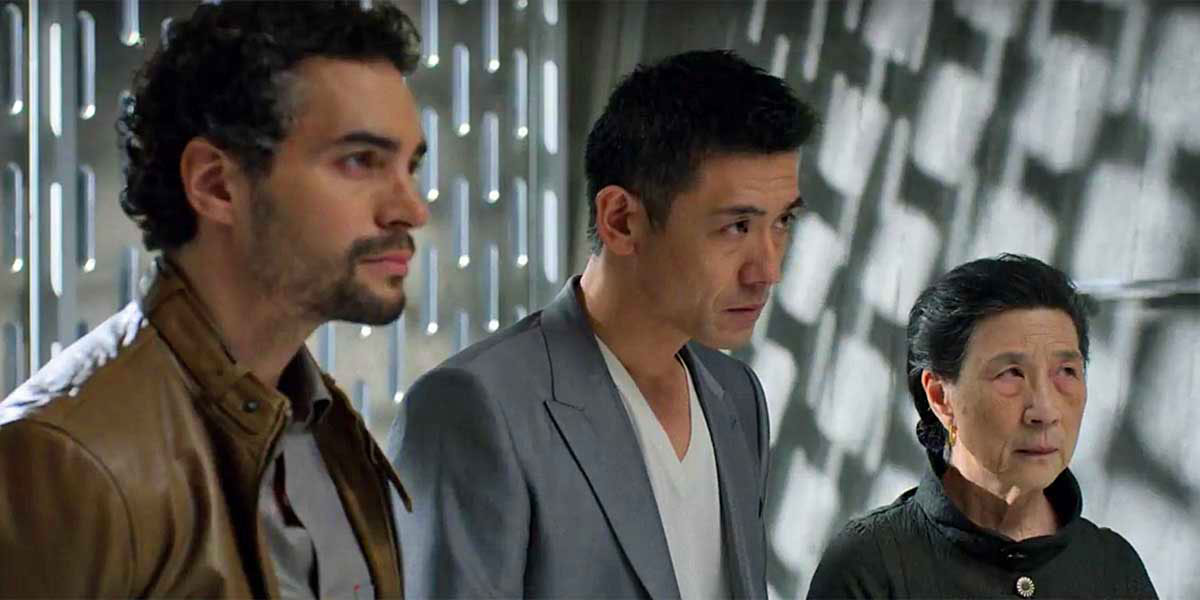
Quick: name any of these characters
None of the members of The Hand distinguish themselves as notable villains. Although we spend hours of screen time with them, they’re essentially interchangeable. You could remove, replace, or combine most of them and not lose much in the way of narrative purpose.
But more frustrating is that Luke Cage and Jessica Jones are also essentially serving the same purpose: the bruising, brawling straight-talker who stands up for the downtrodden. Sure, Luke is a bulletproof optimist and Jessica is an alcoholic cynic. But do we really need two sides of the same coin in a show about four people?
And here’s the rub: this dynamic actually could work if everyone’s personalities were distinctively established and diametrically opposed. But unfortunately, the opposite is true: everyone in The Defenders basically comes off as a sarcastic dick.
For proof, look no further than problem number three:
Generic, Indistinguishable Dialogue
Look, I dig cheesy comic book dialogue as much as the next geek. All I ask is that the characters sound like individuals and not stereotypes. And when your four heroes (and most of their supporting cast) sound identical on the page, what you really have is character mush.
As a golden rule, each character’s dialogue should sound like something only that character would say. The Defenders doesn’t just fail this test, but it fails it with dialogue that’s not even interesting.
Doubt this? Name which character said the following lines:
“I’ve got an idea — but you’re not gonna like it.”
“We found it in the piano.”
“The what?”
“Don’t ask.”“No one loves this city more than I do.”
“How did we even get here?”
“I’m sorry. I can’t let this happen.”
“What you’re suggesting is insane.”
“Thank you.”
“However…”
[Character A glares at Character B]“Not on my watch.”
“The more I think about this plan, the less I like it.”
“Just do what I do: don’t think about it.”“Let’s do something crazy.”
If you said “I can’t tell,” congratulations: you, too, can write dialogue for The Defenders.
Meanwhile, imagine Steve Rogers and Tony Stark swapping dialogue in any Avengers movie. It wouldn’t work, would it? That’s how well the Marvel cinematic universe has done in diversifying its characters’ personalities, and it’s a bar that the TV series need to catch up to.
BONUS: I watched The Defenders with the closed captioning on. If I had a dollar for every time I saw the phrase “[character] chuckles,” I could buy a Thesaurus. This is less an issue with overuse of a simple caption and more a character issue: why is everyone in this series always one line away from chuckling?
Well, maybe it’s because…
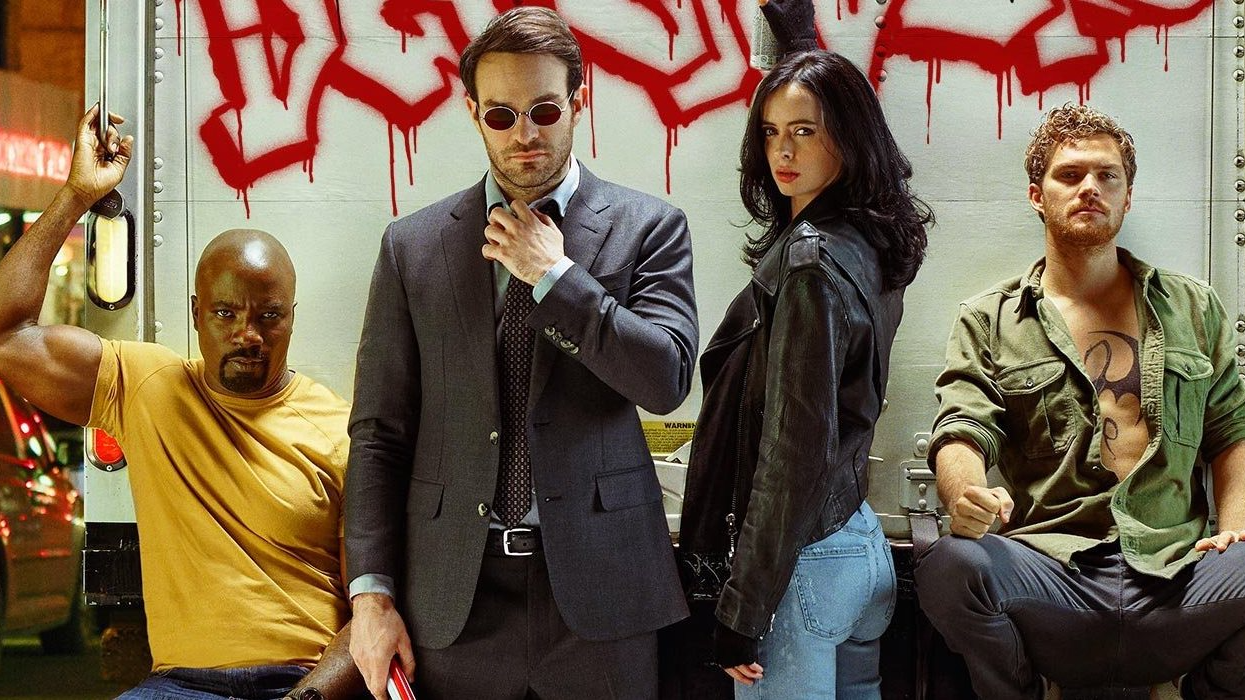
Dirty. Filthy. Too dirty to clean my act up.
(Almost) Nothing Matters
At the end of The Defenders, we’re basically back where we started.
Sure, the threat of The Hand has been built up through a season of Daredevil and another of Iron Fist… but in the end, their entire plan amounts to nothing.
Sure, the Defenders didn’t want to work together, yet eventually they do… but in the end, they’re each alone again.
Sure, Elektra’s resurrection is one of the defining moments in Daredevil’s existence… but in the end, she’s either dead (again) or missing (again), presumably just to set up (yet another) “OMG, Elektra’s back (again)!” moment in Daredevil Season Three.
I get that even serialized TV series are expected to reset to “normal” at the end of major arcs. But when the biggest character change as a result of The Defenders happens to supporting character Misty Knight, I’d call that a narrative shortfall.
But it didn’t have to be this way.
In fact, this really only happens because of a thirty second choice that undercuts the show’s own cliffhanger.
See, just before Daredevil heroically sacrifices his own life to ensure the others make it out of the building alive, he whispers something to Iron Fist. Then the heroes escape, the building collapses, and Elektra and Daredevil die in each others’ arms. Logically, everyone believes Daredevil/Matt Murdock is dead.
During the epilogue, Danny Rand (Iron Fist) reveals to his girlfriend Colleen Wing that Matt’s whispered words to him were: “Defend my city.” These words help Danny finds a renewed purpose in his life. The series closes with Danny on a Manhattan rooftop, looking out over the city that he, not Daredevil, is now sworn to defend. It’s a turning point for the character, as his newfound commitment to selflessness changes him from an entitled narcissist into a man striving to be better.
It’s the perfect way to end this series.
… except that’s actually not the last scene.
No, the actual last scene is Matt Murdock waking up in a hospital bed in a convent. And while that image sets up one of the most popular Daredevil story arcs of all time, it does so at the expense of the show you just spent 8 hours watching.
A better way to handle this?
Let The Defenders end with Iron Fist’s spiritual rebirth in homage to Matt Murdock, so the show feels like it actually meant something. Give the characters and the fans some time to speculate on what a New York without Daredevil could become. Then use Marvel’s The Punisher series to show viewers the extreme vigilante differences between a newly-mature Iron Fist and a vengeance-driven Punisher. Finally, show the Matt Murdock “surprise” hospital reveal at the end of the forthcoming Punisher series, and let that moment serve to bring Marvel’s “street heroes” saga back full circle.
If nothing else, ending Marvel’s The Defenders on a cathartic moment for Danny would have made the 70-ish hours of Marvel’s Netflix shows that led up to this point feel as if they were building toward something that actually mattered.
Instead, what they’ve all been building up to is more of the same.
And at a certain point, audiences are going to start wanting more meaning for their time.
If You Liked This Post
…you may also enjoy this post about how DC should have built its movie universe, or this post about the real reason Pulp Fiction works so well.
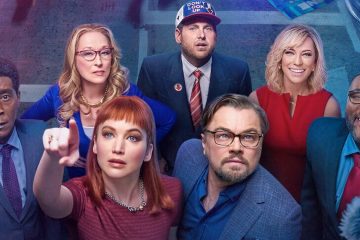
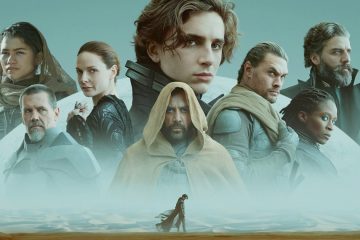
2 Comments
Justin · December 4, 2017 at 8:51 am
Karim, I agree with your take. It all comes down to stakes, and the Hand (and Elektra) don’t represent clear-cut OR highly-personal stakes for any of the characters. “Save the world” is a lazy default plot that’s been overused. It also felt a little “big” for a show that’s supposed to be about street-level heroes fighting local problems.
As for the three levels of villains, Daredevil and Jessica Jones seem to be on the right path. Luke Cage’s villains were more emblematic of a social theme, which can work. And Iron Fist’s… well, here we are.
Hopefully they tighten things up going forward, because there’s too much good TV available right now for fans to feel obliged to sit through another 8 or 13 hours of mediocre storytelling.
Karim Groves · December 3, 2017 at 2:00 am
While I don’t have quite as many issues as you did with the Defenders, I do have my own laundry list of complaints.
To start:
1) There’s a far clear cut risk to NYC in the Avengers than in the Defenders as we are never given any indication as to how exactly harvesting dragon bones will cause the city to collapse
2) Elektra – I almost don’t know where to begin from the fact that she didn’t have the customary fights with each of the Defenders that highlight such tales and have become a staple – plus the fact that the Iron Fist is supposed to be a master martial artist yet somehow wasn’t enough to put Elektra down kind of castrates the character altogether
3) We are never given a reason to fear the Hand aside from their ability to bring back the dead and they have ninjas – that’s about the extent of the Hand’s bag of tricks which made them unbelievably weak villains whereas Loki was able to best Captain America, get into Hawkeye’s mind, kill Phil Coulson almost dispose of Thor and trigger the Hulk in blind rage mode.
There’s no getting around the fact that the heroes are only as great as the evil nature of the villains they are geared up to oppose. Lousy villains = weak heroes, powerful villains necessitate heroes able and willing to go the distance.
Netflix MCU needs to avoid inheriting Disney’s MCU villain problem and the best way to do that is to have three different types of villains in the pipeline at all times.
First is the quintessential nemesis – this is the person or group that represents everything the hero or heroine stands against. For Batman it was the Joker, for Iron Man it was the Mandarin and for Rogers it was the Red Skull.
Second is your neighborhood menace to society, these are the people who start off innocuously enough for they are everything from cops to your sister’s b/f to a slightly obsessed fan or someone from down the street who begins to change from Mr Nice Guy or Girl into someone more dangerous and willing to push the envelope to get you to recognize them or accept them or trying to replace you outright.
Last but not least are the heavy hitters, these are the master criminals or an almost immortal invader from another world or dimension with an agenda that always results is mass casualties and destruction on a grandscale basis although doesn’t always have to be a global one – these villains are so dark and sinister that it often takes the work of more than one lone crusader to stop them because there are always backup plans and technicalities that make it hard to make a direct move.